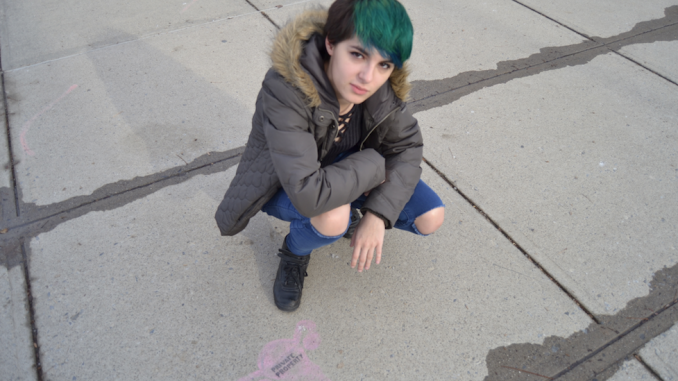
College students abstained from voting in the 2016 presidential election. Due to low voter turnout, some states that typically vote “blue” voted “red.”
On Tuesday, Nov. 8, second-year graduate student Mike Conn woke up at 9:30 a.m. He got dressed, ate breakfast, finished his homework and spent the rest of the day at his internship at Step One Child & Family Guidance Center in Highland. Although he stayed up until the early hours of Wednesday morning watching the results come in, one thing he did not do that day was vote in the 2016 presidential election.
Looking at the history of voting patterns in the United States, it is rare that turnout among college students is above 50 percent. According to NPR’s Asma Khalid the Millennial vote dropped to 15 percent from 26 in this year’s presidential election, despite the strong opposing opinions it inspired. That number seems less surprising given that according to Arthur Levine, author of “Generation on a Tightrope: A Portrait of Today’s College Student,” 68 percent of college students are not politically active or engaged.
This year’s presidential election results have elicited both violent and powerful responses across college campuses ranging from hate crimes, such as the racial signage discovered at SUNY New Paltz in Bouton Hall, to protests in solidarity against Trump, such as the walkout on Friday, Nov. 11.
“This year particularly there was a lot of engagement and I think that’s at least partially because of Trump,” said Jeff Miller, SUNY New Paltz political science chair. “In general, I think that where it counts on Election Day at the ballot box [college students] are less engaged than the general population.”
Michael Bastian, fourth-year political science major, does not believe that the results of this election will inspire students to become more engaged in the political world.
“There was a lot of hype about this [election] because we are a media and consumer-based nation,” Bastian said. “I think Donald Trump encompasses that, he brands himself better than everybody else, but we’re not ready to hold elected officials accountable for decisions they make and that’s just a shame.”
The media fosters political discourse and distributes electoral information and was a prominent force in this year’s presidential election. According to mediaQuant, Trump outpaced Clinton by a total of $1.72 billion in earned media coverage.
Third-year accounting major Anthony Walsh believes that although students are entertained by the media’s coverage of presidential elections, they lack a general political awareness.
“I think they think they’re really engaged in politics,” he said. “They get excited around election time but then it all goes away until the next election when we all think we know who we’re voting for.”
Lack of turnout in the youth vote may have impacted the presidential election results at the state level as well. First-year psychology major Ash Mosquin believes that it had a great impact on President Donald Trump’s victory in her home state, Pennsylvania.
“Clinton didn’t have a lot of passionate support behind her and when Sanders dropped out, there was a lot of backlash against her, particularly among young people,” she said. “They are a huge part of the vote in Philly, which tends to sway Pennsylvania blue.”
Mosquin believes that abstaining is not a form of a protest vote and that “no one cares about an absence of opinion.” Conn, however, does care and consciously chose to abstain from casting his vote on Nov. 8 because of his disagreements with the American political system.
“I personally think that by voting you are contributing to it,” he said. “I don’t want to do my part to contribute to a system that has done so much to hurt so many and that has benefited so few.”
